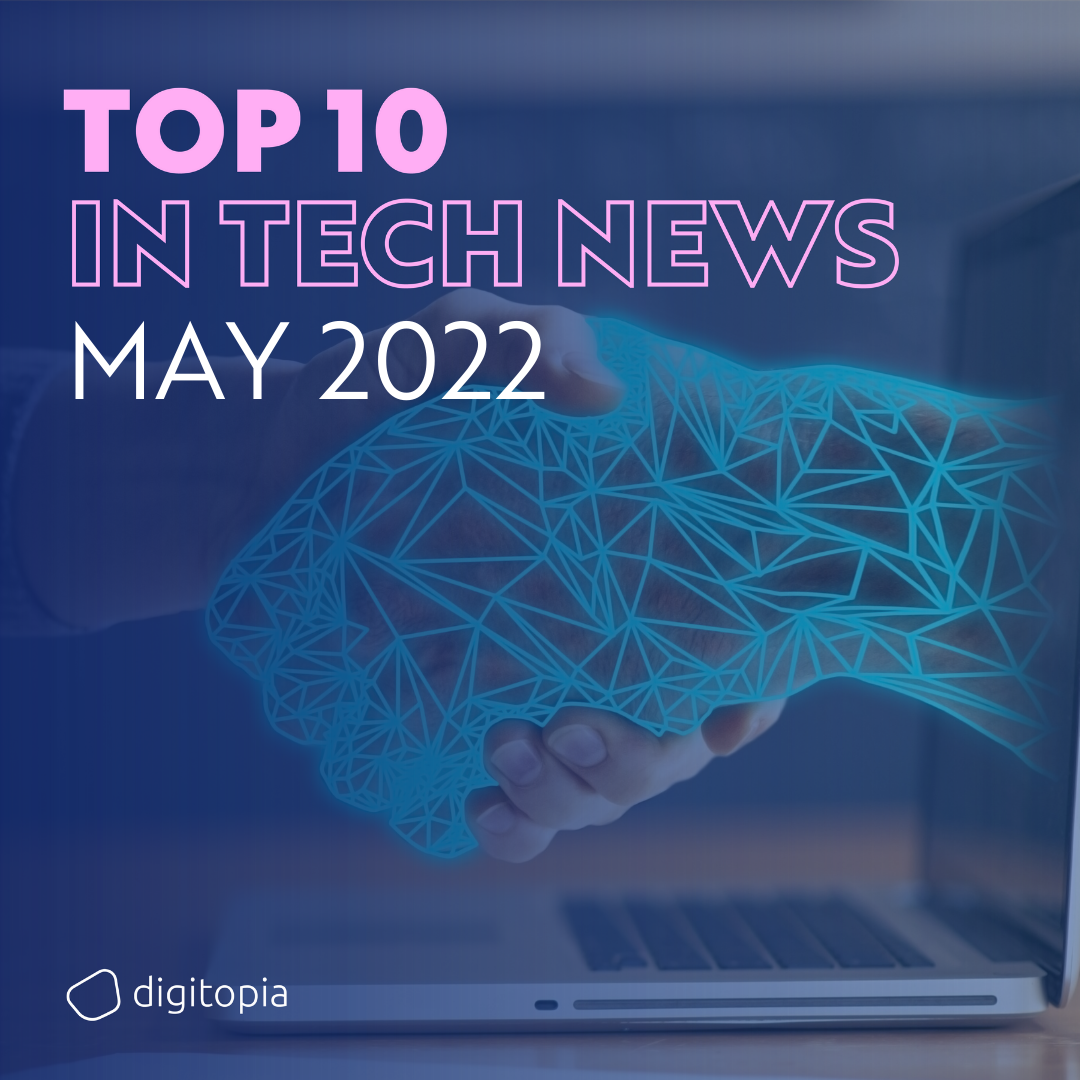
1. NASA “holoported” a group of scientists into space.
According to a recent release, NASA doctor Josef Schmid and his team appeared as a hologram at the International Space Station for a telemedicine visit with an astronaut in October 2021 by using the Microsoft Hololens Kinect camera and a personal computer with custom software Aexa.
“Holoportation” technology, a word that is coming from the combination of hologram and transport, had been in the development process for some time. It allows users to interact with remote participants in 3D as if they were physically in the same space.
Dr Schmid described the technology as “A brand new way of human exploration, where our human entity is able to travel off the planet. Our physical body is not there, but our human entity absolutely is there.” and added that they will be using it for “private conferences and to bring VIPs onto the space station to visit with astronauts”.
Maybe someday in the near future, scientists may even go on an exploratory walk on Mars, while sitting in their office on Earth.
source: Mirror
2. Netflix lost subscribers for the first time in 11 years.
Netflix announced that it has lost subscribers for the first time in 11 years and the company’s shares fell 25%.
Instead of adding more than 2 million subscribers in the first quarter of the year, as it predicted three months ago, it ended up losing 200,000. Next quarter, it expects to lose another 2 million subscribers as well.
For the drop in paid subscribers, Netflix blames the increased global competition, password sharing, inflation and the ongoing Russian invasion of Ukraine.
source: CNBC
3. Will Amazon start selling NFTs?
This Thursday, Amazon CEO Andy Jassy said in an interview that he could “envision a future where the e-commerce giant Amazon sells NFTs”.
Though Jassy does not own any bitcoin himself, he states that he believes in the future of cryptocurrencies and that he expects that they will continue to grow significantly, and even one day in the future they might be including non-fungible tokens in their own marketplace.
NFTs have achieved remarkable popularity over the past year and it is stated that there has been a 21.000% increase in trading NFTs compared to 2020 with a $17.6 billion market last year.
It is clear that companies are starting to recognise the possibilities that cryptocurrencies hold, but the question of which of them will be riding the wave of this NFT interest remains unanswered still.
source: CNBC
4. Microsoft acquired process-mining company Minit
Microsoft has acquired Minit: a process-mining company that helps to fix bottlenecks and make operational improvements by analyzing business processes.
The acquirement is perceived as a logical transition for a large ERP player, as they already have sufficient data in their systems to process. Thus, by plugging in a process-mining component, the company can now expedite their processes, and minimize errors in their workflows and procedures that employees follow.
Microsoft is taking steps to provide more value to its customers by benefiting from the power of data and improving its customer-centricity.
What can your organisation do to maximise business impact? Are you aware of your digital capabilities?
source: protocol
5. Meta starts monetizing Metaverse
Meta is about to begin monetizing its Metaverse and you can soon be able to buy and sell virtual items in Horizon Worlds.
The latest initiative is aiming to offer what its free open-world hasn’t had yet: building an economy.
Though the company has bigger plans on the horizon, including opening up metaverse commerce accessible on all devices with different hardware, for now, the merchandise does not allow transferring the items across apps, working only in the world they have been created in.
Meta continues to seek ways to expand the potential benefit areas of this world and take action towards.
What opportunities does Metaverse hold for your company?
source: cnet
6. Google will be giving users the option to “reject all” cookies in Europe.
Previously, Google offered a range of options to customize users’ preferences by navigating them through different menus that usually take time and effort. That, usually, resulted in clicking the “accept all” button as it was easier to do so.
France claimed that “those options made it more difficult for users to control how they were tracked online, and actually constituted a dark pattern scheme to encourage users to permit cookies.” Thus, French regulator CNIL fined Google €150 million.
The “Reject all cookies” option is expected to be seen in the USA and the rest of the globe as well, in the near future.
source: protocol
7. Twitter is starting to pay its creators with cryptocurrencies.
The company is partnering with Stripe to provide users the option to access their earnings through a crypto payout pilot program with Stripe Connect.
It is stated that they have chosen the network Polygon, “for its low fees, speed, integration with Ethereum, and broad wallet compatibility,”.
Stripe is just one of many payment companies to continue its foray into the crypto space. Other companies like Visa, Mastercard, Block and PayPal have also delved into the digital asset industry as the spotlight on crypto continues to grow.
source: protocol
8. Post-traumatic stress after miscarriage and Virtual Reality
A new study is aiming to help women who experience symptoms of post-traumatic stress after a miscarriage, via VR headsets.
A lead researcher on mental health and pregnancy loss from Tommy’s National Centre for Miscarriage Research at Imperial College London says most women are “falling through the net” and getting little or no psychological support or treatment.
It is one of the many areas where virtual reality can improve everyday life by touching on such critical yet untouched aspects of it.
source: BBC
9. Intel created a tool that detects students’ emotions via AI.
Intel and Classroom Technologies have partnered to integrate an AI-based technology that can detect students’ emotions.
The system runs on top of Zoom during virtual classes which have become the norm in the past couple of years and assesses students’ facial expressions and how they’re interacting with educational content.
“We are trying to enable one-on-one tutoring at scale,” said Sinem Aslan, a research scientist at Intel, who helped develop the technology.
However, the technology has received some critics in terms of the subjectivity of facial expressions that vary across cultures and fluctuates on an individual level as well. Others have expressed concerns about personal rights and morals.
The classroom is just one arena where controversial “emotion AI” is finding its way into everyday tech products and generating investor interest. And as new areas emerge, controversy is expected to come with.
source: protocol
10. The future of gas stations is in doubt.
The presence of electric cars and trucks is increasing day by day, in American Highways. With initiatives being taken to reduce carbon emissions, and automotive companies going all-electric, the future of the gas station is in doubt.
Though some gas stations have started to install charging ports next to their pumps, still the majority of EV charging is being done at home, by the owners.
It is estimated that “if EVs do take off, as much as 80 percent of the fuel retail market could be unprofitable by 2035.”, meaning that 100.000 stations in the USA can go out of business. So, the future of gas stations is in doubt.
source: vox

